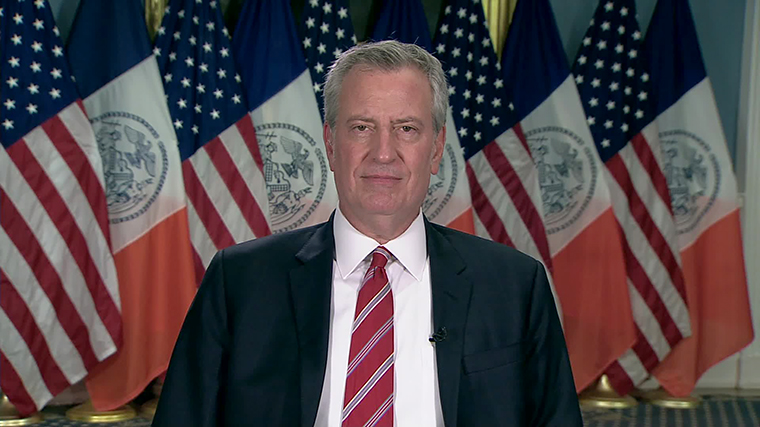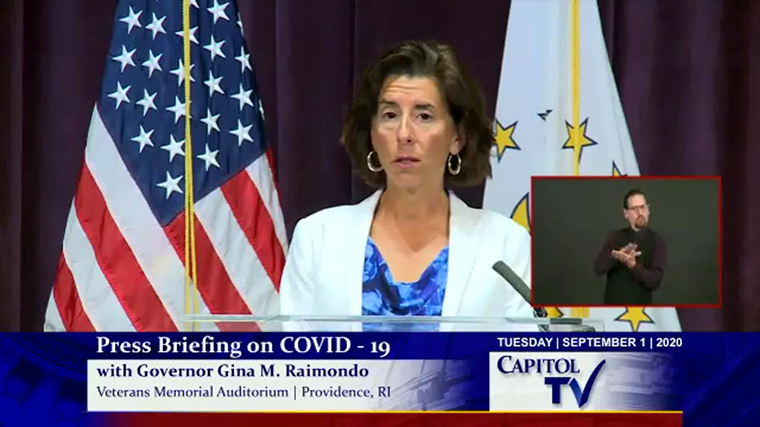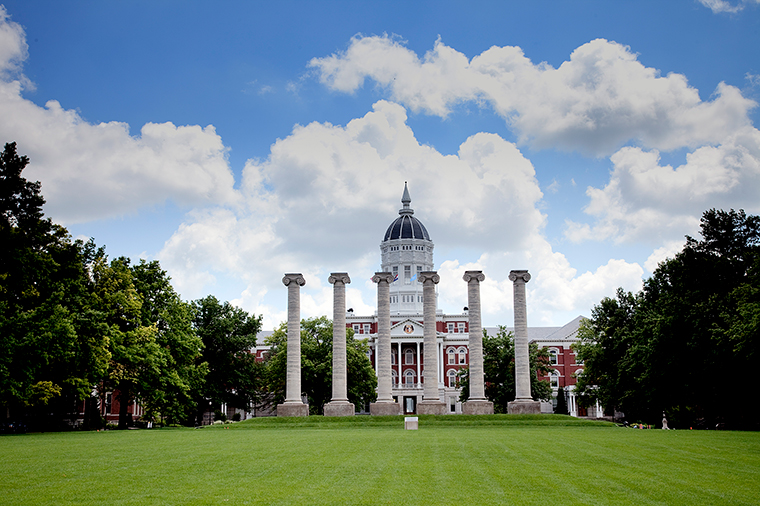New research finds it could take a month for Covid-19 patients to clear the virus
From CNN's Lauren Mascarenhas
Covid-19 patients may need to wait over a month before being retested to know whether they have cleared the virus, and one in five negative test results could be false, according to research published Tuesday in the British Medical Journal.
Dr. Francesco Venturelli of the University of Modena and Reggio Emilia and colleagues studied 1,162 patients in the Reggio Emilia Province of Italy who tested positive for Covid-19 using a polymerase chain reaction (PCR) test.
Patients were retested around 15 days after their first test, 14 days after their second and 9 days after their third. The researchers set these time intervals in accordance with European Centre for Disease Control and Prevention recommendations.
About 60.6% of the patients who recovered tested negative for Covid-19 by their first follow-up test. Another test confirmed that negative result in just 78.7% of these patients, which the team says suggests about one in five negative tests are false negatives. They say this could mean that many are still shedding the virus after testing negative and unknowingly passing it on to others.
The researchers determined a patient had cleared the virus once they tested negative on two consecutive PCR tests. Overall, it took about 30 days from diagnosis and 36 days from the onset of symptoms for patients to clear the virus.
It took slightly longer for older patients and those with more severe disease to clear the virus. The length of time increased from 35 days for those under 50 years old to 38 days for those over 80. Non-hospitalized patients took about 33 days, while hospitalized patients took about 38 days.
By 34 days after patients first noticed symptoms, nearly 87% of them tested negative. This suggests patients may need to wait a month or longer to determine whether they have truly cleared the virus, the researchers said.
The team notes that understanding the timing of viral clearance is key to determining testing strategies and ensuring people don’t have to spend unnecessary time in isolation. The say that postponing the follow-up testing of those who are no longer experiencing illness or symptoms could increase the efficiency and performance of testing strategies.
The US Centers for Disease Control and Prevention advises Americans that they don’t need a second coronavirus test. “Unless your illness required hospitalization, you can return to normal activities (e.g., work or school) after the passage of 10 days from the onset of symptoms and 24 hours from when any fever has subsided on its own (without the aid of any fever-reducing medications),” it advises.
Brazil reports more than 40,000 new coronavirus cases in 24 hours
From Rodrigo Pedroso in Sao Paulo
 Doctors monitor patients infected with coronavirus, at the Municipal campaign hospital at Rio Centro convention centre, west of Rio De Janerio, Brazil on August 27. Fabio Teixeira/Anadolu Agency/Getty Images
Doctors monitor patients infected with coronavirus, at the Municipal campaign hospital at Rio Centro convention centre, west of Rio De Janerio, Brazil on August 27. Fabio Teixeira/Anadolu Agency/Getty ImagesBrazil’s Health Ministry has reported 42,659 new Covid-19 cases over the past 24 hours, bringing the total number of cases in the country to at least 3,950,931.
The ministry also reported 1,215 new coronavirus deaths on Tuesday, raising the country’s death toll to 122,596.
Brazil officially entered into recession on Tuesday, with a historic 9.7% fall in GDP in the second quarter compared to the first three months of the year, according to data from the country's Institute of Geography and Statistics (IBGE).
Brazil continues to trail only the United States in terms of the highest number of coronavirus infections and deaths in the world, according to data held by Johns Hopkins University.
NYC mayor says he is ruling out any further delays on students returning to school
From CNN's Laura Ly
 New York City Mayor Bill de Blasio CNN
New York City Mayor Bill de Blasio CNNNew York City Mayor Bill de Blasio told CNN's Jim Acosta Tuesday evening that he is ruling out any further delays on students returning to school in the nation’s largest school district.
De Blasio added that the majority of NYC parents support in-person learning over remote learning, and that in-person learning also offers students mental health and nutrition support that they wouldn’t typically receive in a remote setting.
While De Blasio maintained that the goal remains to get students back in school safely, he reiterated that they will monitor infection data and adjust their policies accordingly.
If the city’s positivity rate rises above 3%, the NYC school system would be closed, the mayor said.
The latest data from New York City officials reported that the city’s positivity rate as of August 30 was 1.33%.
Rhode Island governor unveils dedicated Covid-19 testing structure for K-12 students
From CNN's Slover Morrison
 Rhode Island Governor's office
Rhode Island Governor's officeRhode Island Gov. Gina M. Raimondo revealed to the media today her extensive coronavirus testing plan to reopen schools to in-person learning. Nearly every school district in Rhode Island will reopen on Sept. 14 to in-person learning except for the Providence and Central Falls school districts.
The governor stated, "Providence and Central Falls, their cases were a little bit higher, so they’re going to start with partial in-person. They can’t go full in-person, so they’re starting with partial in-person, and Providence and Central Falls we’re going to reassess in about a month to see if they also might be able to go back in-person for all kids."
More on the plan: The reopening process will not be all at once on Sept. 14, but instead slowly increase the number of students in the schools until Oct. 13. Parents who continue to use at-home learning services after Oct. 13 are permitted to do so, and the school will provide an at-home learning experience for them. If students or faculty feel sick, they are not permitted to go to the school that day and must get tested before returning.
To use this service, parents or faculty of the schools will need to call a special hotline in order to schedule an appointment with one of these new testing sites. Currently there are a dozen sites planned but that number may increase if necessary throughout the school year, the governor said.
Citizens were also instructed that even if their rapid tests turned out negative, they would still need to wait for results from the PCR test before returning to school or work. This is because PCR test are more accurate than rapid tests but take more time to process.
Schools are also required to establish isolation rooms where those who feel sick during the school day can go to wait to be picked up or relieved from school. Schools are required to these establish isolation room before being permitted to reopen.
University of South Carolina reports over 1,000 active cases of Covid-19
From CNN’s Annie Grayer
 College students eat dinner at the Longstreet Theatre at the University of South Carolina on August 10, in Columbia, South Carolina. Students began moving back to campus housing August 9. Sean Rayford/Getty Images/FILE
College students eat dinner at the Longstreet Theatre at the University of South Carolina on August 10, in Columbia, South Carolina. Students began moving back to campus housing August 9. Sean Rayford/Getty Images/FILEAt least 1,017 students at the University of South Carolina currently have Covid-19, according to the university’s latest update to its dashboard, making it one of the highest case counts recorded at a college so far.
The university crossed the 1,000 active case mark on Aug.. 29 when it reported at least 302 cases in a single day. The overall current case load, including employees, is approximately 1,026.
Despite the climbing active case count and the fact that 60% of the university’s designated quarantine space is in use, according to its dashboard, the school still lists its alert level as “low.”
San Francisco to relax some Covid-19 restrictions on businesses
From CNN's Sarah Moon
 In this May 27, file photo, closed businesses are seen in downtown San Francisco. Ben Margot/AP/FILE
In this May 27, file photo, closed businesses are seen in downtown San Francisco. Ben Margot/AP/FILESan Francisco officials announced plans to relax restrictions on businesses under the state’s new four-tiered coronavirus reopening system. The new system allows businesses, shopping malls and churches to begin reopening under a new timeline.
At a news conference, Mayor London Breed said San Francisco, California, is now in the second level of four tiers where coronavirus risk is considered “substantial."
The classification allows hair salons, nail salons, and massage parlors to resume operations outdoors on Tuesday, according to Breed, and outdoor gyms will be allowed to reopen as early as Sept. 9.
Breed also announced the immediate reopening of indoor shopping malls in the city.
“They can reopen because we are no longer on the state’s watch list,” said Breed.
Next steps: Starting mid-September, San Francisco plans to reopen hotels, outdoor movie theaters, outdoor family entertainment such as mini-golf, outdoor tour buses and boats, indoor museums, zoos, and aquariums. Houses of worship will be able to allow individual prayers indoors and outdoor services for up to 50 people, Breed said.
The mayor said she hopes to reopen more indoor business sectors by the end of this month.
University of Missouri reports more than 400 active cases of Covid-19 in students
From CNN’s Renee Baharaeen
 Carol M. Highsmith/Buyenlarge/Getty Images/FILE
Carol M. Highsmith/Buyenlarge/Getty Images/FILEThe University of Missouri has at least 424 active student Covid-19 cases, according to the school's Covid-19 dashboard.
A total of at least 591 student cases have been reported since the university began receiving data from the Boone County Department of Public Health and Human Services on Aug. 19.
Classes at the University of Missouri resumed Monday, August 24.
Christian Basi, Director of the University of Missouri’s News Bureau, told CNN that today’s active case number only increased by nine new cases from yesterday.
The university hopes this significant downturn in new active cases is indication they have turned a corner.
Convalescent plasma should not be considered standard care for Covid-19, NIH panel says
From CNN's Maggie Fox
A National Institutes of Health panel says there’s no evidence backing the use of convalescent plasma to treat coronavirus patients and says doctors should not treat it as a standard of care until more study has been done.
“Convalescent plasma should not be considered standard of care for the treatment of patients with COVID-19,” added the committee, which evaluates treatments for coronavirus.
“Prospective, well-controlled, adequately powered randomized trials are needed to determine whether convalescent plasma is effective and safe for the treatment of COVID-19. Members of the public and health care providers are encouraged to participate in these prospective clinical trials.”
Some background: Last week, the US Food and Drug Administration issued an emergency use authorization for convalescent plasma, and President Trump declared it a historic breakthrough at a news conference.
The timing raised suspicions the White House had pressured FDA – something FDA Commissioner Dr. Stephen Hahn denied several times.
But Hahn had also made misleading comments about the data supporting the use of convalescent plasma – which is the antibody-rich serum taken from the blood of people who have recovered from an infection. The hope is infusing this plasma into new patients will kickstart their immune response. It’s a treatment that dates back more than 100 years and has never been used broadly.
The NIH panel, led by Dr. Clifford Lane, who heads research at the National Institute of Allergy and Infectious Diseases; Dr. Roy Gulick, chief of the Division of Infectious Diseases at Weill Medical College of Cornell University; and Dr. Henry Masur, chief of the Critical Care Medicine Department at NIH, said much more research is needed into whether the treatment works. Data published so far don’t really show whether it helps patients, they said.
“The long-term risks of treatment with COVID-19 convalescent plasma and whether its use attenuates the immune response to SARS-CoV-2, making patients more susceptible to reinfection, have not been evaluated,” the statement added.
Plus, different patients have differing levels of antibodies, so the treatment is highly variable.
Cincinnati says early bar closures are causing "unintended consequences"
From CNN’s Rebekah Riess.
After Cincinnati Police Chief Eliot Isaac wrote a letter to Ohio Gov. Mike DeWine saying there had been some unintended consequences from the state’s order closing bars early, including multiple shootings and assaults, DeWine said the state is consulting its lawyers to see if it is possible to carve Cincinnati out of the statewide order.
“Frankly, our lawyers’ initial read they gave us, was they were very skeptical if we legally could do that. But they’re going to research it and we’re going to see what they come up with,” DeWine said.
The governor said unlike Cincinnati’s police chief and Mayor John Cranley, the majority of mayors in the state believe the 10:00 p.m. liquor shutoff has been helpful rather than harmful as the state combats the Covid-19 pandemic.

 5 years ago
527
5 years ago
527 

